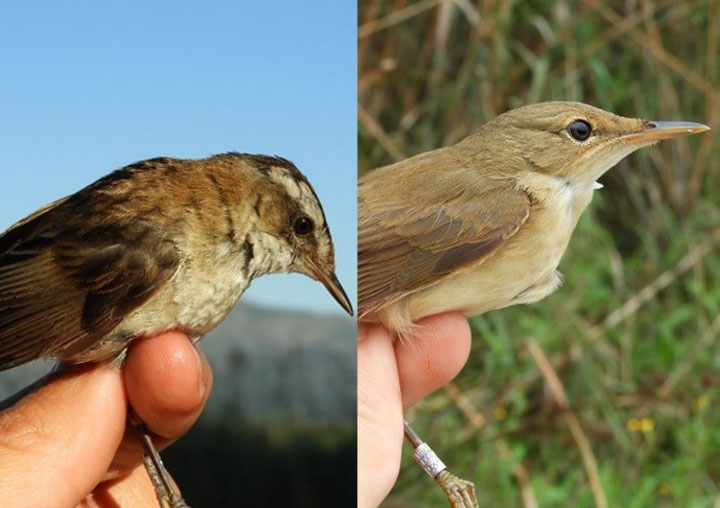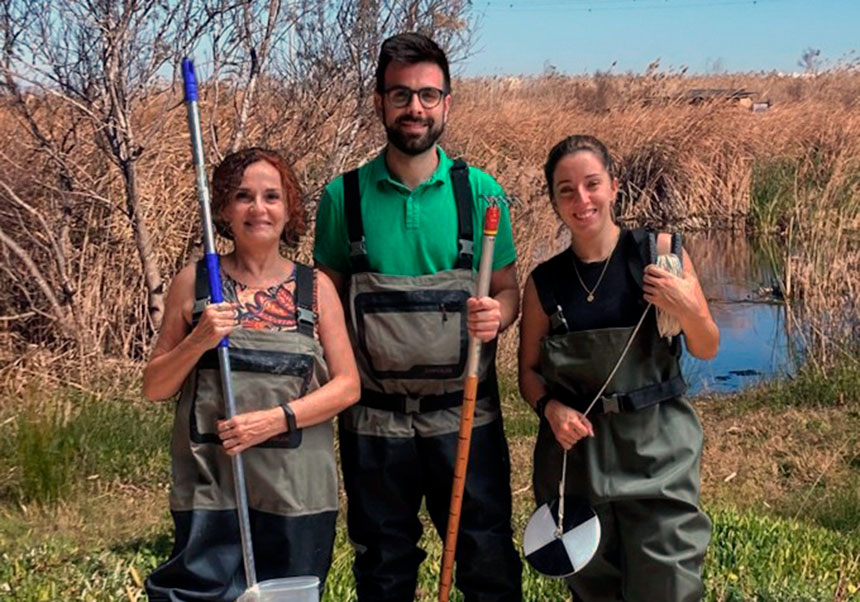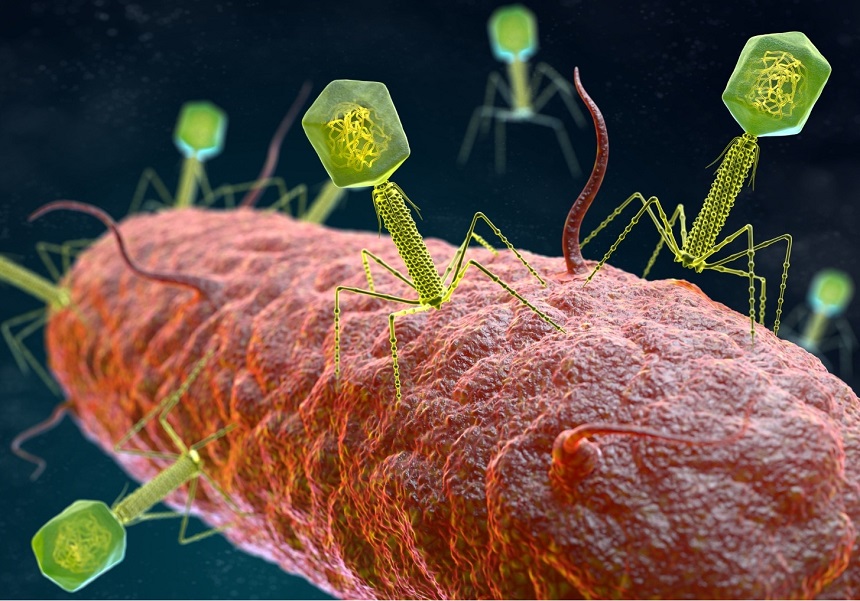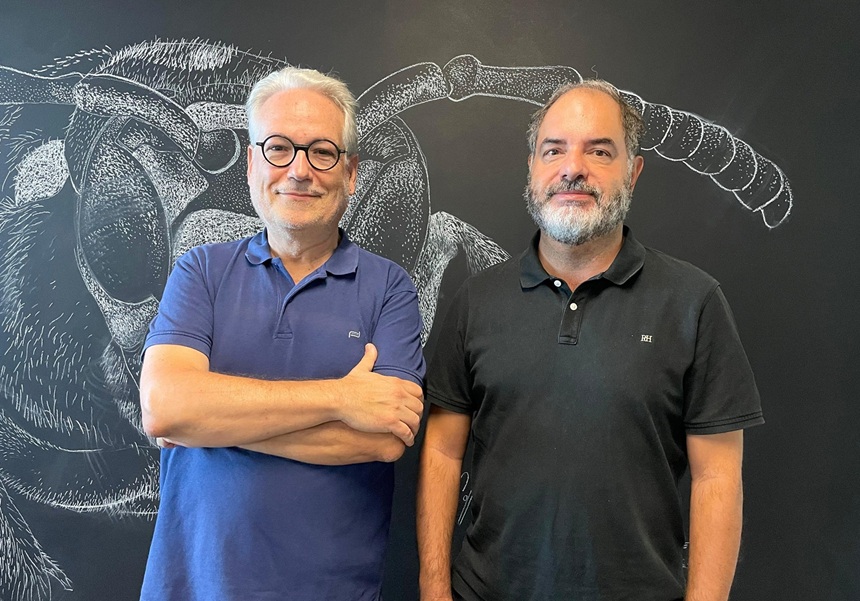UV and UPV researchers study the impact of climate change on bird productivity
- Press Office
- July 2nd, 2024

Research staff from the Cavanilles Institute of Biodiversity and Evolutionary Biology of the Universitat de València and the Gandia Campus of the Universitat Politècnica de València have studied the consequences of climate change on the productivity of two species of passerine birds. The results show that extreme weather conditions, such as warmer temperatures and higher frequent torrential rainfall could threaten the preservation of the population of these birds.
Published in the Bird Study scientific journal, the paper is part of the doctoral thesis of Adjunct Professor of the Department of Animal Science at the Gandia Campus Pau Lucio, developed between the UPV and the Cavanilles Institute of Biodiversity and Evolutionary Biology of the UV.
The two species studied were the Moustached Warbler (Acrocephalus melanopogon) and the common Reed Warbler (Acrocephalus scirpaceus), both associated with wetlands of the Mediterranean coast.
The Moustached Warbler is a resident/short-distance migrant and is classified as ‘vulnerable’ in the Libro Rojo de las Aves de España (2021), due to the decrease in its population in recent years. Spain is home to the largest population of this specie in Western Europe.
In contrast, the common Reed Warbler is more generalist in terms of its habitat preference. It is a long-distance migrant bird that visits Spanish wetlands during breeding season and spends the winter in Africa. Its conservation status is defined as ‘least-concern specie’, as it is widespread throughout the European continent.
Scientific ringing
According to Pau Lucio, the aim of the research was to understand the extent to which different climate and geographical factors affect productivity. The study examines the relationship between the number of young individuals born in a given year and the number of adults of both species, by using a large database with 25 years of ringing in Spanish wetlands. “In particular, we have used data from a scientific ringing programme for the monitoring of breeding bird species in Spain (PASER) from 1995 to 2021,” adds Pau Lucio.
Effects of extreme weather events
The study suggests that an accumulated rainfall of around 100 mm favours the productivity of the Moustached Warbler, whereas rainfall above this threshold is detrimental to the reproduction of the species. For temperatures, the UPV and UV team observed that high levels had a negative effect.
By contrast, temperature had a positive effect on the productivity of the common Reed Warbler, whereas rainfall had almost no effect, although productivity also peaked when rainfall approached 100 mm.
“Warmer temperature and higher frequency of torrential rainfall events may threaten the preservation of the Moustached Warbler in Spain due to the adverse effects on productivity. In contrast, increasing temperatures may benefit the common Reed Warbler,” points out Virginia Garófano, researcher from the Integrated Management of Coastal Areas Research Institute (IGIC) of the Gandia Campus of the UPV.
Thus, the research concludes that, given the current climate emergency situation, Moustached Warbler populations are likely to decrease, whereas Reed Warbler populations might increase. However, further research is needed to determine the impact of climate change on survival and its implications for population trends and dynamics of these two species.
Climate-sensitive periods
One of the main advances of this research was using a database with large spatial and temporal distribution, as well as studying a specific period (time window), in which climate variables have the most significant impact on productivity, thus, defining climate-sensitive periods while taking into account spatial variables (place, longitude, latitude and elevation) and temporal changes (year).
“This progress in the ecological modelling of trends in bird population has been possible thanks to complex data modelling techniques, such as data mining, machine learning techniques and genetic algorithms in model optimisation,” points out Rafael Muñoz-Mas, researcher also associated with the IGIC of the UPV and co-author of the study.
---------------
Reference
Lucio-Puig, P., Muñoz-Mas, R., Belda, E., Gómez, J., Ceresa, F., Garófano-Gómez, V., Pahissa, J., Monrós, J. S. (2024). Unravelling the link between productivity and climate for two sympatric Acrocephalus warblers across Spain. Bird Study, 1–14. https://doi.org/10.1080/00063657.2024.2343956
Categories: Institut Cavanilles de Biodiversitat i Biologia Evolutiva , Recerca, innovació i transferència
















